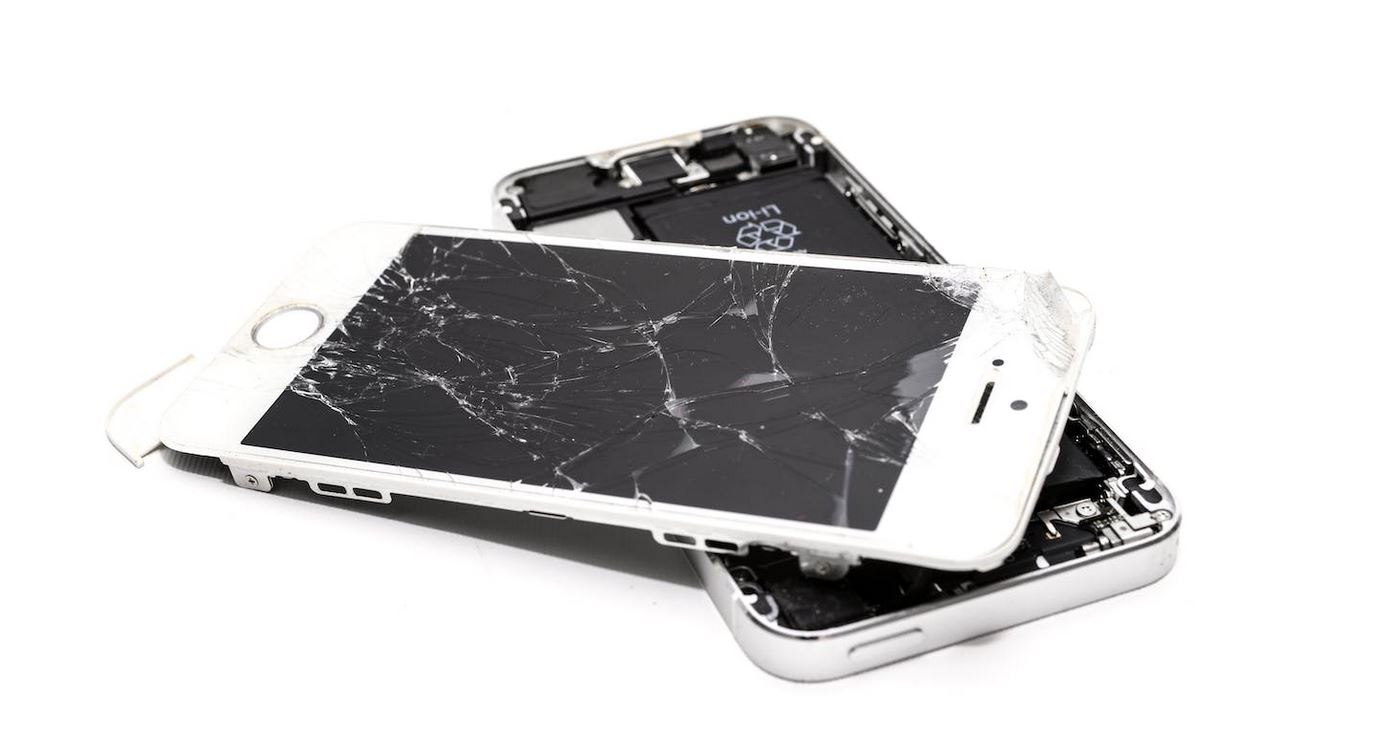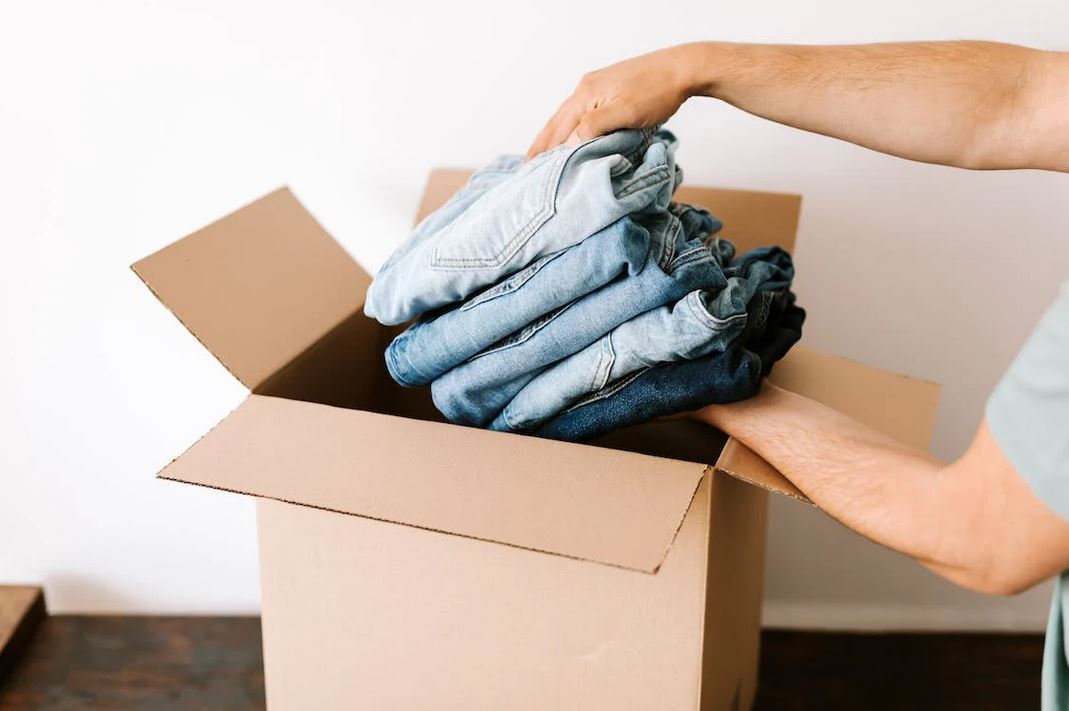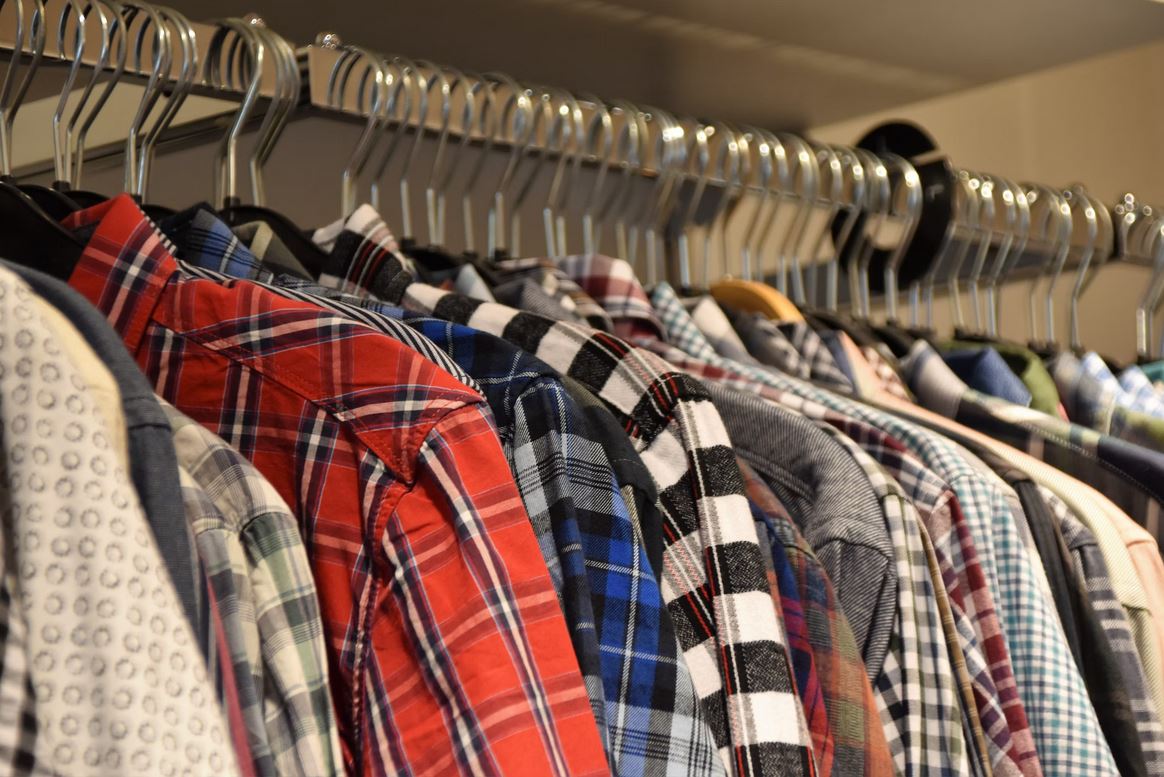What Not to Donate to Thrift Stores: 9 Ultimate Categories of Items to Not Donate
Thrift stores have become as American as apple pie. What was once seen as a place for the down and out to shop has now become mainstream. Thrift store shopping allows you to grab unique vintage pieces, save money, and keep usable items out of landfill.
The rise in popularity has led to a massive increase in donations. While thrift stores love all gifts, some end up causing more harm than good. Certain items can become safety hazards, and legal liabilities, or get immediately tossed in the trash.
This comprehensive guide covers all the things you should never donate to thrift stores. We’ll explore the reasons behind their donation policies, categories of unacceptable items, and alternatives for properly handling these no-nos. Let’s dive in to these important thrift stores know-hows!
Key Takeaways on What Not to Donate to Thrift Stores
Remember these tips when decluttering for thrift stores:
- Avoid donating damaged, defective, expired or hazardous goods.
- Exercise caution with used undergarments, mattresses and stuffed animals.
- Remove all personal and sensitive data from donated electronics.
- Make sure items are clean, complete and in working order.
- When in doubt, call ahead! Thrift stores can clarify what they can and cannot accept.
- Consider alternative donation options, selling sites, recycling or repurposing before trashing unaccepted items.
- Properly donating helps communities, the environment and thrift store missions.
What Not to Donate to Thrift Stores: Categories of Items You Should Avoid Donating
To help you identify what to keep out of donation bins, here are the main categories of unacceptable items divided by common groups:
1. Clothing and Textiles
While thrift shops gladly accept gently worn apparel, anything damaged, soiled, or unwearable will get tossed. Avoid donating:
- Ripped, torn, or permanently stained clothing: Stores can’t resell damaged goods. Stains set in by heat or bodily fluids are especially unsalvageable. A t-shirt with large pit stains or jeans ripped across the knees should be avoided.
- Undergarments: Due to health and hygiene concerns, used undergarments like underwear and socks are a no-go. Donating used bras, underwear, athletic socks, nylons, or shapewear spreads germs.
- Worn out, threadbare, or moth-eaten clothing: Shoppers want durability. Overly pilled, faded, and ragged clothes won’t make the cut. An unraveling holey sweater or see-through thin pants should be trashed.
- Outdated trends: Thrift shops move high volumes of goods. Dated styles using long abandoned fabrics or silhouettes likely won’t find a buyer. Big hair scrunchies and multi-colored windbreakers are hard sells.
- Pillows or stuffed animals: These fuzzy items can harbor dust mites, bed bugs, and bodily fluids from previous owners. Pass them by. Don’t donate a child’s drool-covered stuffed elephant.
- Pet hair-covered or damaged textiles: Thrift stores avoid rugs, towels, blankets, and cloth furniture with excessive pet hair or stains. A fur-covered duvet or rug stained by pet urine are big no-nos.
2. Shoes and Accessories
Give your soles and kicks the inspection before expecting them to be displayed:
- Used footwear: Pre-worn shoes or socks might spread fungus or odors. Donate new socks or lightly used footwear. Avoid donating smelly worn sneakers or sweat-stained boots.
- Single shoes: Thrift stores have no use for shoes without their pair. Make sure both are presentable. They can’t sell just one hot pink croc.
- Damaged or worn out shoes: Boots and shoes with holes, tears, missing hardware or excessive wear are better off in the trash. Don’t donate sandals with broken straps or shoes with holes in the soles.
- Dirty hats: Due to potential lice or bed bug threats, most stores won’t accept used hats without cleaning them first. Make sure baseball caps are washed before donating.
3. Media and Electronics
Be selective when it comes to donating CDs, DVDs, tech gadgets and appliances:
- Devices with personal information: Make sure to wipe phones, tablets, computers, and media to avoid exposing private data. Perform a factory reset on that old iPhone.
- Broken electronics: Items with cracked screens or non-functioning parts should be recycled, not donated. No one wants a TV with a busted speaker or a laptop with missing keys.
- Outdated media formats: Cassette tapes, VHS tapes, and players cause more headaches than profits for thrift resellers. DVDs have replaced VHS tapes.
- Tube TVs and CRT monitors: Bulky analog televisions and screens are practically unsalable due to digital transitions. New flat screens have made clunky tube TVs obsolete.
4. Major Appliances and Furniture
Large home goods like washers, dressers, and mattresses require extra precautions:
- Broken appliances: Unless easily repaired, damaged or non-working appliances end up in the dumpster. A blender that doesn’t turn on or a microwave with a door that won’t latch should be junked.
- Items banned for resale: Federal law prohibits reselling recalled or hazardous products like drop-side cribs. Look up recalled merchandise on CPSC.gov before donating.
- Used mattresses: Bed bugs and stains make gently used mattresses risky merchandise for thrift operators. Mattresses get soaked with sweat and bodily fluids over time.
- Pet fur-covered furniture: Upholstered goods saturated with pet dander present health risks and extra cleaning costs. A pet-stained couch will probably get declined.
- Exercise equipment: Large or heavy gym equipment is tough to resell unless in flawless condition. Donate smaller workout accessories instead of huge machines.
5. Toys and Games
Keep the playroom clutter under control with these tips:
- Incomplete games or puzzles: Unless 100% intact, puzzles, board games, and sets with removable parts tend to be refused. Make sure the Monopoly game has all its pieces and cash before donating.
- Used stuffed animals: Due to hygiene concerns, most thrift stores won’t accept plush toys except in as-new condition. Check teddy bears and unicorns for stains before donation.
- Broken toys: Don’t bother donating action figures, dolls, or playsets with missing or busted pieces. If the Barbie dream house elevator is broken, it likely won’t make the cut.
- Unclean baby gear: Car seats, cribs, baby carriers, and cloth toys require meticulous cleaning to be considered for resale. Disinfect high chairs thoroughly before dropping them off.
- Adult-themed games and media: R-rated video games and movies rarely align with the values of non-profit thrift stores. Keep Grand Theft Auto and risque movies out of the donation pile.
6. Food and Beverages
To avoid contaminating inventory, thrift stores typically don’t accept:
- Alcohol: Beer, wine, and liquor are subject to regulations around selling and distribution. Donate unopened sodas and bottled water instead of alcohol.
- Expired foods: From baby formula to pantry staples, outdated edibles pose health hazards. Check expiration dates on foods before donating.
- Open containers: Partially used food, supplements, and beauty products harbor bacteria and must be tossed. Never donate half-used condiment bottles or opened protein powder tubs.
7. Sporting Goods and Automotive
Treat equipment that gets roughed up with care:
- Helmets and car seats: Used infant and child safety seats, bicycle helmets, and more are frequently turned away after crashes. These items could be compromised if involved in collisions.
- Oil, fuel, or automotive fluids: Toxic car chemicals require special disposal and cannot just be donated to thrift stores. Take motor oil, gasoline, and antifreeze to hazardous waste recycling.
- Rusted or damaged recreational items: Dinged-up bicycles, treadmills, and other activity gear should be serviced before expecting retailers to accept them. Fix wobbly wheels on bikes before donating.
8. Health and Personal Care
Intimate items understandably give thrift stores pause:
- Used makeup and skincare: Cosmetics and topical products are magnets for microbes. Never donate half-used lipstick or moisturizer tubs which harbor bacteria.
- Medications: Federal regulations prohibit donating prescription drugs. Over-the-counter pills and vitamins also raise safety issues if expired or tampered with.
- Undergarments and swimwear: Due to sanitation considerations, most stores refrain from selling used underthings like underwear, bras, and bathing suits which spread germs.
9. Household Items
Miscellaneous household donations might also miss the mark:
- Hazardous chemicals and cleaners: Bleach, paint thinner, automotive fluids and corrosive products require special disposal. Improperly donated cleaners could expose others to danger.
- Used batteries: Alkaline and lithium batteries can leak toxic compounds when stored improperly. Recycle them instead through take-back programs.
- Pet food or medications: Animal products introduce risks of allergies, contamination, and open pouches attracting bugs. Do not donate opened cans or treat bags that pets might have eaten from.
- Expired goods: From pantry items to beauty products, toss anything past its use-by date. The expiration date indicates when food or medicine is no longer considered safe to use.
Overview of Top Thrift Store Chains
Now that we know of what not to donate to thrift stores, let’s turn our attention some thrift stores guidelines. Most major thrift store chains have similar guidelines on donations. Here are some of the heavy hitters:
Goodwill
Goodwill Industries is one of the largest and most recognizable thrift store chains. They accept a wide variety of used goods except items that are broken, dirty, or potentially hazardous. Goods donated to Goodwill provide job skills training, employment, and community programs for people in need.
The Salvation Army
The Salvation Army operates over 4,000 thrift stores nationwide. Their mission combines social services with retail outlets. Donations to The Salvation Army go towards providing food, shelter, rehabilitation, job training, and more for underprivileged groups. They have firm policies on unacceptable donations.
Savers
Savers operates over 300 thrift stores supporting non-profit partners through purchases and community donations. They aim to divert usable goods from landfills. Savers do not accept car seats, weapons, chemicals, flammable liquids, or broken appliances.
Habitat for Humanity ReStores
Habitat ReStores are thrift shops whose proceeds go towards building homes for those in need. They accept new and used building materials, appliances, furniture, home accessories, and more if clean and in working order.
Value Village
With over 300 locations across the U.S. and Canada, Value Village collects, resells, and recycles second-hand items. They help fund programs assisting people with disabilities, seniors, and vocational training initiatives. They discourage donating broken or soiled items.
Deseret Industries
Deseret Industries is a thrift store chain operated by The Church of Jesus Christ of Latter-day Saints to fund job training and vocational programs. They do not accept hazardous, flammable, or expired items.
Local/Regional Thrift Stores
Many charity resale shops are run at a local level to fund specific missions like animal welfare, medical research, and more. It’s always wise to call your local thrift stores and ask about their donation guidelines.
Why Do Thrift Stores Have Donation Policies?
Thrift and consignment stores rely heavily on donated used goods to stock their shelves. So why turn anything away? Here are some key reasons thrift stores have policies on what they can and cannot accept:
Limited Storage Space
Most thrift stores operate out of smaller retail spaces. They don’t have endless room to house donations that may never sell. Rejecting bulky, damaged or obsolete items helps maximize limited storage capacity. For example, a broken tube TV from 2002 will probably sit in the back for years without a buyer.
Ability to Resell Items
As non-profits, thrift stores generate revenue primarily through selling donated merchandise. Items that are broken, dirty, or unusable take up space without generating profits to fund their cause. A thrift store wants goods like modern television or trendy clothing they can quickly turn around, not damaged goods.
Avoid Legal Liability
Thrift stores could face legal risks accepting car seats, recalled items, realistic toy weapons, or goods that have been prohibited for resale. Donation guidelines help limit liability. For instance, if a thrift shop accepted a recalled baby crib that later injured an infant, the organization could be sued.
Health and Safety Concerns
Items contaminated with bodily fluids, pests, chemicals, or other hazards could jeopardize the health and safety of employees and shoppers if resold. Used stuffed animals or pillows could spread bed bugs, while a broken electronic device could electrically shock someone.
Environmental Impact
Keeping landfill-bound goods out of thrift stores helps reduce waste and environmental harm. Donation policies ensure proper recycling or disposal. For example, used motor oil gets recycled instead of dumped improperly.
Best Practices For Donating Acceptable Items
For donated goods that make the cut, prepare them properly to help your thrift stores:
- Clean stains, make repairs and check for pests and odors. Wash clothes, mend holes, and check furniture for bed bugs.
- Wash and dry clothing to look and smell fresh. Machine or hand wash clothes with detergent and dry them completely.
- Remove all personal information and data from the media. Erase files, contacts, and personal data from phones, laptops, tablets, and media.
- Factory reset electronics and wipe devices completely. Phones, computers, and smart home tech often have reset options in settings.
- Ensure all parts, pieces, cords, and accessories are included. Tie-connected remotes, power cords, and game pieces in bags attached to items.
- Wrap or box fragile items carefully to prevent breaks. Use bubble wrap, crumpled paper, or other cushioning when boxing dishware, figurines, and frames.
- Bag together paired shoes, game pieces, earrings, etc. Use zipper bags to keep all parts of the items together.
- Check expiration dates on consumables like food, makeup, and medications. Do not donate anything past expiration or shelf life dates.
- Organize by category and label contents on boxes. Separate by clothing, kitchenware, books, and electronics. Detail contents on box exteriors.
Following these tips helps set your donations up for thrift store success.
Alternatives For Unaccepted Items
Just because thrift shops pass on certain offerings doesn’t mean they must end up in the landfill. Here are some other options:
- Donate to organizations that accept specific items. Domestic violence shelters often take cell phones, children’s hospitals distribute stuffed animals, and animal shelters welcome pet food donations. Do some research to match declined goods with charities in need.
- Sell or giveaway usable goods online. Facebook Marketplace, Craigslist, eBay, and garage sales help find new homes for functioning items declined by charities. List that exercise bike for sale online if your local thrift doesn’t have space.
- Utilize recycling programs in your community. E-waste and hazardous waste dropoff points, scrap metal recycling, and textile recovery sites like H&M help keep goods out of trash heaps. Look up recycling options for batteries, electronics, appliances, and more.
- Contact waste removal services for large or bulky items. Many haulers offer special pickups for mattresses, exercise equipment, appliances, and furniture you can schedule conveniently. 1-800-GOT-JUNK and similar services can remove those heavy goods.
- Repurpose things around your home. Turn stained clothes into rags, busted toys into art projects, and expired food containers into DIY organizers. With a little creativity, give unaccepted items new life!
Why It Matters To Donate Mindfully
Being selective about what goes into those donation bins directly impacts thrift stores and communities. Here’s how you can make a difference with proper donations:
- Support charities and their missions. Quality merchandise resells to fund job training programs, medical research, and other vital initiatives. Your junk could be another’s treasure when donated thoughtfully!
- Reduce waste and environmental harm. Reusing goods avoids methane pollution in landfills and minimizes extraction of virgin resources. Keeping useable goods circulating reduces environmental impact.
- Protect staff and customer health. Keeping out soiled items, hazards, and recalls prevents the spread of germs and dangerous defects. Ensuring the safety of donated merchandise is crucial for those handling it.
- Limit legal liability. Screening out prohibited, defective, or inappropriate merchandise limits an organization’s exposure to lawsuits. Proper donation prevents major liability issues.
- Save thrift stores effort. Preventing trash donations helps nonprofit staff direct more time toward their causes instead of waste removal. Don’t waste their time with broken junk!
What Not to Donate to Thrift Stores – Final Remarks
While thrift stores gladly welcome clothing, furniture, home goods, appliances and more, they also deal with plenty of donations that end up straight in the garbage. Being mindful of what not to drop off reduces waste for charities. With some creativity, you can almost always find ways to give unaccepted offerings a new life!
Now that you know what to keep out of those donation bins, you can declutter your space guilt-free and support local organizations. Just remember to call ahead if you have any questionable hand-me-downs. What will your next great thrift store find be?
Frequently Asked Questions
What are some examples of things I should not donate to thrift stores?
Here are some common categories of items thrift stores cannot accept:
- Hazardous materials – paint, chemicals, gasoline, motor oil
- Used undergarments – underwear, bras, bathing suits
- Broken electronics – TVs with cracked screens, appliances missing cords
- Stained or ripped clothing – clothes with permanent stains or tears
- Recalled items – cribs, toys, appliances banned for resale
- Personal hygiene items – used makeup, razors, deodorant
- Expired foods and drugs – anything past expiration or sell-by dates
- Damaged furniture – pet-stained upholstery, furniture with bedbugs
Why can’t I donate my old stuffed animals and pillows?
Stuffed animals and pillows pose contamination risks since they can harbor allergens, germs, and pests like bed bugs from previous owners. Most thrift stores will not accept used stuffed animals or pillows to avoid health issues.
What should I do with items thrift stores don’t accept?
Try these alternatives before trashing unaccepted items:
- Donate to charities accepting specific declined goods
- Sell usable items on Craigslist, Facebook Marketplace, etc.
- Recycle electronics, appliances, textiles, hazardous waste
- Repurpose things creatively around your home
- Schedule pickups for large/heavy items like mattresses
How should I prepare acceptable donations for drop off?
Properly prepare and package donations by:
- Cleaning and repairing items as needed
- Completely removing personal information from media
- Ensuring electronics and appliances work and have all cords/parts
- Bagging together paired items like shoes or game pieces
- Placing fragile items in boxes with cushioning
- Grouping similar items into labeled categories
What clothing items should I avoid donating?
Do not donate:
- Torn, stained, or damaged clothing
- Old, threadbare or permanently faded clothes
- Outdated styles and fabrics
- Undergarments including underwear, bras, socks
- Clothing with excessive pet hair or odor
Why do thrift stores avoid accepting mattresses?
Used mattresses pose health hazards and reselling challenges:
- Difficult to thoroughly sanitize bodily fluids/stains
- Could spread bed bugs, dust mites and allergens
- Not cost effective to clean and dispose if unusable
- Problematic for charities to handle bulk/weight
Can I donate my 10 year old CRT TV or computer monitor?
Many thrift stores no longer accept bulky and obsolete CRT televisions and monitors due to decline in demand with flat screen popularity. Call ahead before expecting charities to accept CRT electronics.
What criteria should car seats, bike helmets and sports gear meet for donation?
Safety gear like car seats and helmets must:
- Have no prior major crashes or collisions
- Pass all expiration dates
- Include original manufacturer labels and parts
- Be thoroughly cleaned and disinfected
Damaged, expired or incomplete safety gear should be recycled, not donated.
Why do most thrift stores decline household hazardous materials?
Paint, chemicals, automotive fluids and cleaning agents require special handling under hazardous waste disposal regulations. Thrift stores are unable to legally or safely accept and process hazardous household materials.
editor's pick
latest video
news via inbox
Nulla turp dis cursus. Integer liberos euismod pretium faucibua




